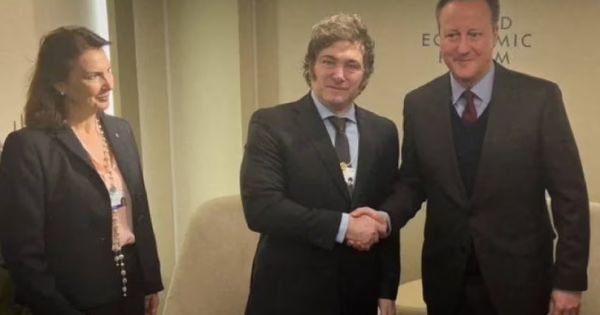[ad_1]
Argentina: Inflation in February reaches 13.2%, according to Indec
Prices went up above inflation projections, Adorni said in a press conference. Retailers foresaw a catastrophe that did not happen, he added
According to a report from Argentina’s National Institute of Statistics and Census (Indec) released Tuesday in Buenos Aires, the South American country’s Consumer Price Index (CPI) went up 13.2% in February of 2024 for a yoy total of 276% amid notorious declines in industry, construction, and consumption.
A February study by the Catholic University places poverty at almost 60% of the population, with 10% in indigence.
In January, inflation reached 20.6% and 25.5% in December. Hence, February’s figures would prove a downward trend despite a 36.6% combined for the first two months of the year.
February’s figure is the result of the national government’s work to impose strong fiscal discipline, explained the office of the Argentine president in a statement as Javier Milei’s non-negotiable fiscal discipline through a reduction in the size of the State, staff layoffs, and the elimination of subsidies deepens the loss of purchasing power for Argentine households.
Telecommunications went up 24.7%, followed by transport at 21.65%, utilities at 20.2%, and food and non-alcoholic beverages at 11.9%, with increases in meat and by-products; Bread and cereals; and Milk, dairy products and eggs standing out, according to the Indec.
The Argentine economy is registering declines in industry, construction, and consumption, which plunged 13.4% year-on-year and 6.6% compared to January, according to the consulting firm Focus Market.
I do not rule out that in April there will be a strong drop in inflation, Milei said Tuesday in a TV interview. Milei is determined to reach a ”zero (fiscal) deficit” as agreed upon with the International Monetary Fund (IMF). For the Argentine President, ending inflation is the top priority.
Economy Minister Luis Toto Caputo expressed his concern Monday to executives of supermarket chains about the excessive increase in prices and insisted that the prices of mass consumption products do not reflect today the new economic reality.
On Tuesday, Milei’s administration announced the opening of imports of basic food basket products to improve competition and bring down the prices of locally-produced goods. Experts pointed out that the measure was not bad but Argentine taxes should be stricken if fair competition was sought.
In its three months in office, the government launched an ambitious deregulation of the economy, seeking to minimize the role of the State, lower inflation and achieve budgetary stability. To this end, Milei issued a mega-decree with amendments to regulations and laws, but the initiative has accumulated dozens of injunctions questioning its constitutionality and its labor chapter has been suspended by the courts. He also sent to Congress the so-called Omnibus Law bill which failed to make it through. Hence, Milei is brokering with the provincial governors the so-called May Pact through which he hopes to obtain the approval of a shorter version of his reform plan, in exchange for federal funding.
Presidential Spokesman Manuel Adorni said that importing products would normalize prices. He also pointed out that retailers admitted to Caputo that prices had gone up above the inflation expectation.
They had evaluated a catastrophic scenario, which did not occur, Adorni explained. The increases in January and December led to some products being more expensive in Argentina than in the United States or Europe.
[ad_2]
Source link




